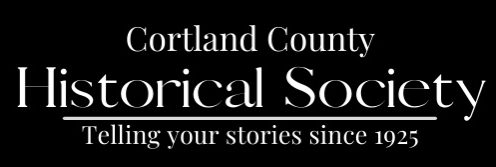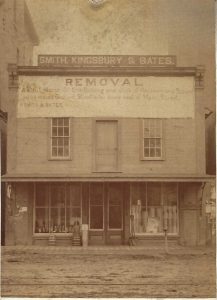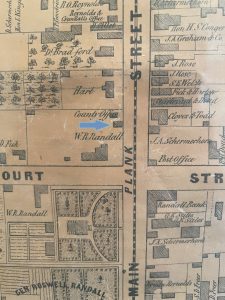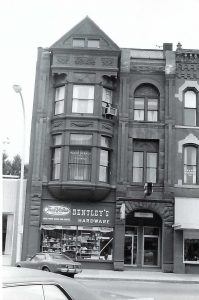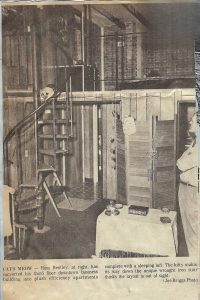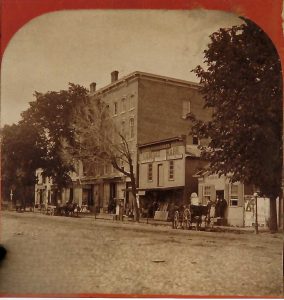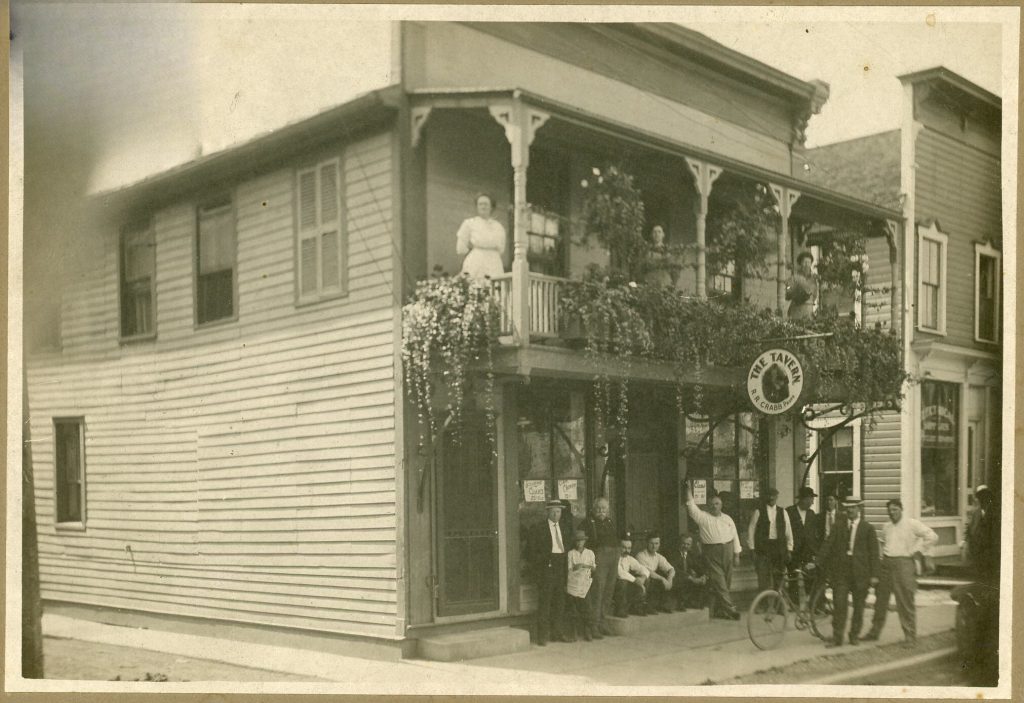
This is another location where the early history is something of a mystery, and I’m not even sure of the accuracy of what I did manage to find out. Smith’s “History of Cortland County” provides a date of about 1863 for an early structure, at which point the firm of Mills & Goodrich (dealers in hardware, stoves, and tinware) moved a frame building from the corner of Main and Court Street to the spot to serve as their new store. Smith indicates that in its old location, the building had been occupied for many years as a seminary. This would refer to Cortland’s female boarding seminary school, which operated from 1828 to 1838. Other sources indicate that the seminary building crumbled away in its original spot. I have yet to confirm one way or the other!
